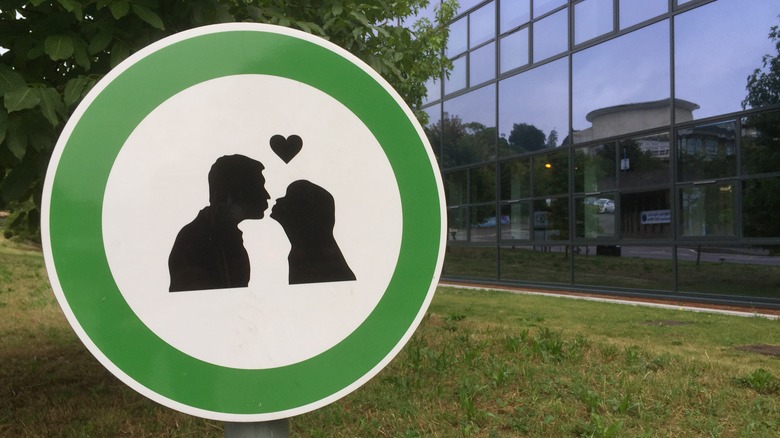We all know that Italians traditionally kiss each other on the cheek and anyone who’s been to Spain likely noticed couples frolicking and cuddling in public parks. Besides, there’s no need to disclose the origins of the term “French kissing.” Among the many unique historical and cultural travel experiences in Europe, the social norm of public displays of affection, or PDA, might be a surprise — tourists from non-European countries should be prepared to see a fair share of this unexpected behavior.
PDA in European culture can vary significantly, from subtle gestures, such as holding hands, to more pronounced expressions, like passionate kisses. These aren’t limited to hormonal teenagers experiencing their first love but are common across nearly all ages, reflecting a comfort with affection that might be less prevalent or perceived differently in other parts of the world. Most Asian and African countries consider PDA to be taboo. Middle Eastern countries and India have laws against PDA — while visiting Dubai, know that public kissing is illegal, while in conservative Indian cities like Chennai, you can be attacked by the “moral police” or imprisoned for committing an “obscene act.”
From the cute cafés in Amsterdam to the open squares of Madrid, public spaces in Europe serve as safe havens for affectionate expression. The public space as a “communal living room” contributes to the normalization of PDA. These are places where life unfolds in all emotional depths, including the overt celebration of personal relationships — nearly everyone does it, and no one seems to mind.
Cultural variances of PDA within Europe

PDA has an extensive background in Europe. Unlike modern times, PDA used to be shunned due to patriarchal influences and religious reservation — in 19th century England, unmarried women were not allowed to speak to men, and in ancient Rome, platonic kisses were permissible for everyone except unmarried women. Breaking away from these attitudes in the 20th century was an equitable and empowering renaissance for women and, broadly, people in love. Today, sexuality is not a taboo topic, and sex education is generally accessible and comprehensive in most of Europe. In Spain, due to economic conditions, many people live with their parents into their 30s. Because of these circumstances, getting frisky in a public space becomes the only opportunity for intimacy.
Nonetheless, Europe is a continent of diversity, and attitudes towards PDA vary from one country to another. Southern and Mediterranean destinations, such as France, Spain, and Greece, are known for their warm and expressive cultures, where PDA is openly accepted and practiced. Northern countries, like Germany, Switzerland, and Russia, while still open to some forms of PDA, exhibit it in a more prudent manner. Major cities across the continent tend to be more accepting, while rural areas are more reserved. Attitudes toward PDA by LGBTQ+ couples also vary. Western Europe and Nordic countries have high levels of tolerance, acceptance, and supportive legal frameworks. However, Eastern and some Southern European countries, like Poland, Romania, and Russia, have seen a rise in conservative and anti-LGBTQ+ sentiments.
Navigating PDA as a tourist

For tourists, encountering different norms around PDA — whether as spectators or participants themselves — might be an adjustment. This is essential to understand before screaming, “Get a room!” What might be unusual in your home country could be perfectly normal in another cultural context. A 2015 study found that 54% of 168 cultures surveyed do not engage in romantic/sexual kissing, while 46% do, indicating that kissing of this type is not a human universal. Moreover, although PDA is generally acceptable in the U.S., a 2014 study by YouGov shows that 71% of Americans consider public make-outs to be inappropriate. Approaching these differences with respect is essential; if a European couple’s PDA is making you uncomfortable, look away or leave the space.
If you’re traveling with a partner, Europe’s attitudes can be a good opportunity to explore your own comfort levels with PDA. Take it as an invitation to engage more openly with your partner, provided both are comfortable with the level of public affection. However, remember that while PDA is generally widely accepted, it’s important to gauge the appropriateness based on the setting. Religious sites, memorials, or more conservative areas call for subdued behavior. In general, observing the locals and how they interact with each other is a reliable guide. Whether you find yourself strolling through the vibrant streets of Barcelona or admiring the historical sights of Vienna, remember that the public displays of affection you’ll encounter are an example of Europe’s embrace of life and love.

